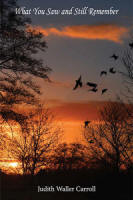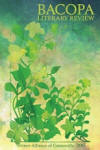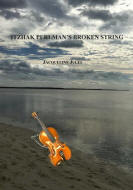
 Honorables, Boobies, and Other Prizes
It’s been a while since one of my poems won first prize in a contest. In fact, I’ve been pretty much striking out lately. Second honorable mention? That’s a booby prize by any other name, right? Third prize? What if only three poems were entered in the contest? Now, as prize season heats up, I’m wondering what’s the use.
Poets & Writers magazine maintains an online
database of contests, grants, and awards, and I
even shelled out a few bucks for their PDF
publication “Guide to Writing Contests” in hopes
of learning the secret handshakes that will put
me ahead of the crowd
Honorables, Boobies, and Other Prizes
It’s been a while since one of my poems won first prize in a contest. In fact, I’ve been pretty much striking out lately. Second honorable mention? That’s a booby prize by any other name, right? Third prize? What if only three poems were entered in the contest? Now, as prize season heats up, I’m wondering what’s the use.
Poets & Writers magazine maintains an online
database of contests, grants, and awards, and I
even shelled out a few bucks for their PDF
publication “Guide to Writing Contests” in hopes
of learning the secret handshakes that will put
me ahead of the crowdNo such luck. One problem, and this is my own fault, is that I put so much effort into submitting for publication that when the time comes to enter a contest, most of my best pieces are already spoken for. But the real problem might well be that my poetry just isn’t good enough. My fault entirely, of course, and the only remedy I can think of is to just keep trying.
Good luck with your own contest entries (unless, of course, they push mine down into the booby prize category). ..................................................................................................................................... A Poetic Cop
 Richard Eric Johnson, one of the members of my monthly poetry group, is a retired street cop and Army veteran who served in Viet Nam and West Berlin. And wrote and wrote about it. Eric’s
Memoir Poetic of a Naked Cop resonates with passion and reflection, with caustic observation and take-no-prisoners narration of the horrors of war and the tragedies of the street. Here’s one of his poems that stood out for me:
Richard Eric Johnson, one of the members of my monthly poetry group, is a retired street cop and Army veteran who served in Viet Nam and West Berlin. And wrote and wrote about it. Eric’s
Memoir Poetic of a Naked Cop resonates with passion and reflection, with caustic observation and take-no-prisoners narration of the horrors of war and the tragedies of the street. Here’s one of his poems that stood out for me:
Missing in Action
By Richard Eric Johnson
Their politicians
Our politicians
Got us there
Many the ceremonies
With taps and folded flags and rifle salutes
Many the ashes flung into the winds
Or tossed upon the seas
The politicians
Talked and talked
Mostly lied
Too many soldiers just disappeared
Not a single piece of remaining flesh
Suit
By Sally Zakariya
Age is a heavy suit.
Its threads and buttons
snare you, weigh you down,
until at last you say Enough
and lie down where the suitt
has led you.
You may think you can
cast off the suit, but no—
it cannot be removed, piece
by piece or all at once.
A Romanian singer sang
of the suit. A Swedish poet
wrote of the tailor who takes
your measurements.
What can I add that has not
been said and said better
except perhaps that the suit
is deceptively light
when you first put it on.
In the middle of life it happens that death comes
and takes your measurements. This visit
is forgotten and life goes on. But the suit is
sewn in the silence.
I borrowed one of the lines as the epigraph of a poem of my own, “Much to Tell,” which is currently going the submission rounds. Here are a few other lines, plus the names of the poems they’re taken from. Any one of these lines (or the other 82, for that matter) might prompt a new poem:
• That there is so much to tell now, really now. (“As We Know”)
• And the face / Resembles yours, the one reflected in the water. (“Summer”)
• No matter how you / twist it, / life stays frozen in the headlights. (“Wakefulness”)
• Ask a hog what is happening. Go on. Ask him. (“Grand Galop”)
• Something shimmers; something is hushed up. (“This Room”)
• Tomorrow is easy, but today is uncharted. (“Self-portrait in a Convex Mirror”)
• But you are too preoccupied / By the secret smudge in the back of your soul. (“Just Walking Around”)
• It was always November there. (“The Chateau Hardware”)
 Speak,
Memory
One of the rewards of putting together a poetry anthology is the rich network of writers the collection creates. As I was gathering poems, quotations, and cover photos for Joys of the Table, I sometimes imagined all the contributors exchanging verses over supper in a huge dining hall. It never happened, of course. But next best is hearing from them, especially with good news.
Judith Waller Carroll, whose poem “Lemon Bread” appeared (along with a yummy recipe) in Joys, recently shared some really exciting news: her first full-length collection, What You Saw and Still Remember, will be released in January by the Main Street Rag Publishing Company. As reviewer Andrea Hollander says of Carroll’s poems, “Her precise images take hold and settle until the poem’s close, when they stab and sizzle. … Carroll’s finely wrought poems seize our own hearts and do not let go.”
I couldn’t agree more. Here’s a moving piece from the book, which is available for pre-order:
Speak,
Memory
One of the rewards of putting together a poetry anthology is the rich network of writers the collection creates. As I was gathering poems, quotations, and cover photos for Joys of the Table, I sometimes imagined all the contributors exchanging verses over supper in a huge dining hall. It never happened, of course. But next best is hearing from them, especially with good news.
Judith Waller Carroll, whose poem “Lemon Bread” appeared (along with a yummy recipe) in Joys, recently shared some really exciting news: her first full-length collection, What You Saw and Still Remember, will be released in January by the Main Street Rag Publishing Company. As reviewer Andrea Hollander says of Carroll’s poems, “Her precise images take hold and settle until the poem’s close, when they stab and sizzle. … Carroll’s finely wrought poems seize our own hearts and do not let go.”
I couldn’t agree more. Here’s a moving piece from the book, which is available for pre-order: My Father’s Blue Sweater
By Judith Waller Carroll
He hasn’t been alive for over twenty years
but suddenly, here he is in this room,
smelling of Marlboros and mints,
wearing that blue cardigan,
faded and soft, slightly frayed at the cuffs,
the one I brought home after his funeral
and wore for weeks without washing,
not wanting to lose the scent.
He is reeled back on his heels
reciting Emerson by heart,
dark eyes wide, unruly eyebrows raised,
long fingers outstretched, smoothing the air.
 I was delighted when my poem “Theory of Omission” was accepted for publication in the 2017 Bacopa Literary Review, an annual international print journal published by the Writers Alliance of Gainesville, Florida. I was even more delighted when my copy arrived. The journal overflows with thoughtful writing and is handsomely produced. (By the way, it turns out bacopa is a genus of aquatic plants that grow in tropical and subtropical areas like Florida.)
I was delighted when my poem “Theory of Omission” was accepted for publication in the 2017 Bacopa Literary Review, an annual international print journal published by the Writers Alliance of Gainesville, Florida. I was even more delighted when my copy arrived. The journal overflows with thoughtful writing and is handsomely produced. (By the way, it turns out bacopa is a genus of aquatic plants that grow in tropical and subtropical areas like Florida.)
Theory of Omission
By Sally Zakariya
A sparrow rests on the rusted
fencepost, its red-brown feathers
echoing the rust
Omit the sparrow and the thought
of bird remains, mental excavation
discovering what is no longer there
So it is with loss
That which is removed, remains
that which never was, hovers
on the edge of existence
You who are now gone
you who never were
my archaeology creates you –
sparrows that do not rest
on any fencepost
 |
Avocado Secret
By Jacqueline Jules
When the widow wrote
how her husband
once said she was like
a perfectly ripe avocado,
I wanted to rush right out
and buy one. Examine
its tough exterior,
creamy innards,
solid core.
Learn its secret.
At your bedside, I was
best described as a banana.
A fruit turning brown
and mushy too quickly.
Just like an avocado
when sliced too late.
Except I had no pit
deep inside, stopping
the knife.
Hoarder, with Orchids
He collected newspapers and magazines
years of them
bright spines of National Geographics
stacked high like a yellow brick road
to the sky
piles and piles of publications carefully
curated wall by paper wall
narrow pathways between the walls
a tantalizing maze to me at six
He was my parents’ friend
and later they said he’d gotten worse
but he seemed fine to me
a builder, an excavator creating
his own topography there in his
living room
an archaeologist who could find
history at the bottom of each mound
even if he couldn’t find a clear space
for mother to sit
But he made room for his orchids
lavish flourishes of blossom
pink to lavender to blue arrayed
in graceful sprays
lovingly tended in a big bay window
row by row, a sort of orchard
with a generosity of empty space
between the plants
Starstruck
In the darkened theater, the tall
actor with his Yiddish tongue
beguiled my mother. During my
stark childhood days, her fantasy
of him, this star of stars
brought before me a glimmer of
what might exist beyond my loneliness.
On Sunday afternoons she took me
with her to the playhouse on Walnut Street
to see an unlikely miracle, Yiddish
drama presented by actors, rags
upon their bodies, passion in their
eyes, swords in their scabbards.
Above all, my mother loved this
prince of actors, Maurice Schwartz.
His dark good looks, his widow’s
peak, his stride across the stage.
He commanded it all, surmounted
obstacles, averted disaster.
I saw him in her eyes when she looked
at me, when she smiled.
What did she think that day, arriving
early, finding him there in the small
box office. Where were the dark eyelashes?
The eyebrows, the high-colored cheeks?
The man before her, dull gray
not a shining beam of light in God’s universe.
He glance up, saw our sadness, turned away.
We sat through the play. Suffered
with the sufferers on stage. Surely
my mother felt disillusioned, but I
could not agree. In that dark space
light and life remained.
Illusion and imagination.
A dream of dreamers.
An opening in my mind.
Trouble is, we’re often taught to approach a poem by analyzing metaphor, understanding allusion, and probing for deeper meaning. Instead, Zapruder advises, start with the words themselves. “One of the greatest pleasures of reading poetry is to feel words mean what they usually do in everyday life, and also start to move into a more charged, activated realm,” he writes.
“Somewhere, in every poem, there are words that shine forth, light up, almost as if plugged in,” says r. “This is what poetry can do for language, and for us.”
Read Zapruder’s “Critic’s Take” here. .................................................................................................................................... Root, Trunk, Bark, Bough I used to climb them, but that was long ago. Now I write about them, and sometimes I’m lucky enough to have my tree poems published. One of them, “Paperbark Maple,” is in a beautiful new book called These Trees. Photographer Ruthie Rosauer has gathered more than 130 of her photographs and paired them with poems. The collection, handsomely designed and printed, would make a great gift for anyone who loves trees.
Paperbark Maple
Wind animates the three-lobed leaves
curled to cup the summer air
A folio of bark peels off in shaggy sheets
scribbled with imagined verses
These paperbarks are artist trees
self-portraits en plein air
They tell their stories leaf
by silent leaf
for us to read their changes
Fall brings a fiery palette, then winter
twigs write letters on the sky
In spring winged double seeds hang-
glide on wind in artful acrobatics
Where they take hold another year
will bring its own new poetry
“Take the time to visit the individual sites of lit mags that you are interested in,” says Becky Tuch, founding editor of The Review Review, a useful newsletter of views on publishing. “Read their guidelines,” she continues. “For some reason, people often consider themselves exempt from rules. You're not. You must play by the rules like everyone else. It doesn't make you boring. It makes your writing accessible.”
This is just one of Tuch’s tips for getting published in literary journals. Read seven more in From Pen to Print. My favorite? “Approach your writing with fierce determination.
.....................................................................................................................................
What Are
You Writing?
Why should we get all the bylines?
Submit your latest poem—just one for now—and we’ll
publish the poems we like best in an upcoming blog
post. Simultaneous submissions are fine, but please
let us know if the poem is accepted or published
elsewhere. Send your poem, plus a few lines about
yourself, in the body of an e-mail message to:
poetryeditor@RicherResourcesPublications.com
You
Are Here
Welcome to
But Does it Rhyme?
INVITE US TO YOUR INBOX! Would you like to receive
our monthly newsletter? Sign up
here.
We're a small,
but hopefully growing, band of poets who like to
talk about our craft and share what we've written.
We'll highlight favorite poets, review new books,
and explore the process of writing poetry from inspiration
to conclusion. (We might venture into essays and
short fiction, too.) We hope you'll like our blog
— and contribute your own thought and poems.
Sally Zakariya, Poetry Editor
Richer Resources Publications
Charan Sue Wollard
(LivermoreLit)
Kevin Taylor
(Poet-ch'i)
Sherry Weaver Smith
(SherrysKnowledgeQuest)
ARCHIVES
